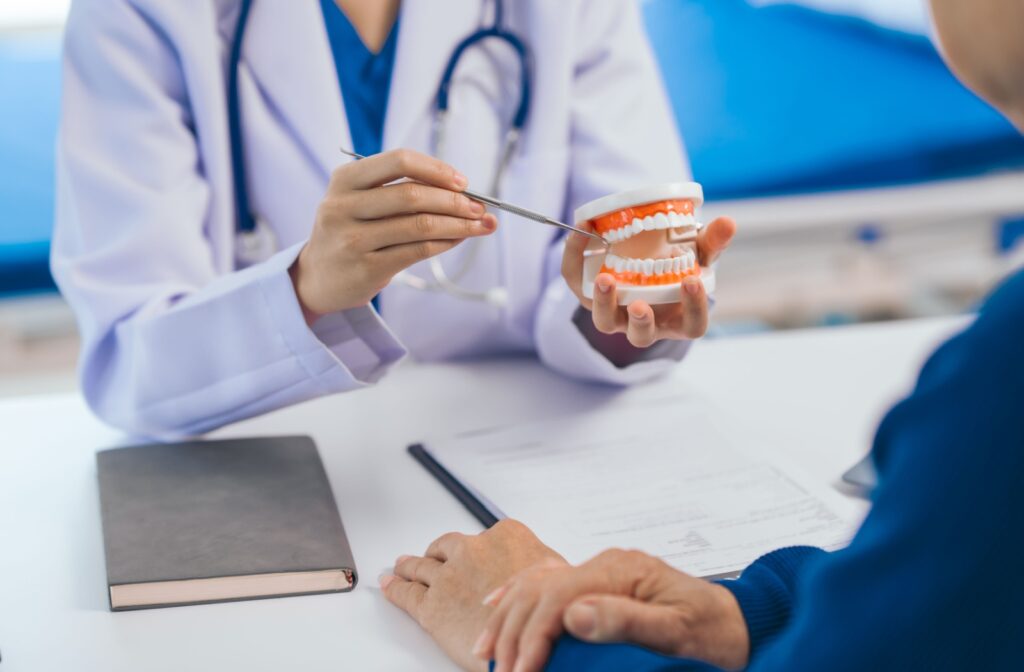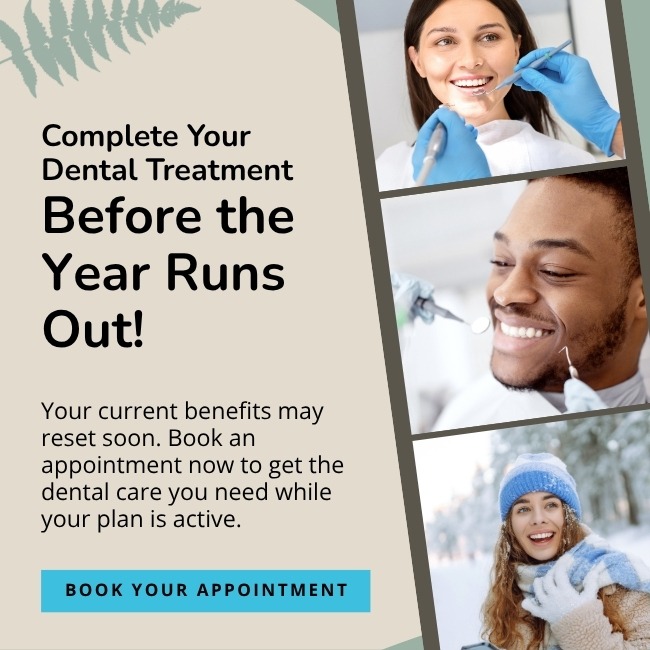Tooth extraction is a common and safe dental procedure, but the healing process requires careful attention and care. Some do’s and don’ts after a tooth extraction include:
- Do not use a straw
- Avoid spicy and acidic foods
- Avoid high-impact sports and high-intensity cardio
- Get enough rest
- Allow the extraction site to heal
- Stay hydrated
- Deal with swelling or discomfort
- Don’t smoke
- Don’t drink carbonated beverages
- Don’t eat hard or chewy candy
- Don’t disturb the extraction site
Whether you’re recovering from a wisdom tooth removal or another type of dental extraction, the information we cover here should give you a good idea of the proper aftercare considerations. But like any medical procedure, following your dentist’s recommendations for anything unique to your situation is crucial. And be sure to book a follow-up dental exam if there are any issues during the health process.
Understanding Tooth Extraction
Tooth extraction involves removing a tooth from its socket. While an extraction may sound daunting, the procedure could be necessary to address severe decay, infection, or overcrowding. Proper post-extraction care is crucial to prevent complications such as infection and promote optimal healing.
Do’s After a Tooth Extraction
Ensure you follow all your dentist’s specific aftercare instructions, but here are a few things that you should do following a tooth extraction.
Do Get Enough Rest
Rest is vital following any surgical procedure, including tooth extraction. Allow your body to focus on recovering by taking it easy for the first 24 to 48 hours. Avoid strenuous activities and elevate your head with pillows to minimize bleeding and swelling. Your body needs time to recuperate, so don’t rush back into your routine too quickly.
Do Allow the Extraction Area to Clot & Heal
A blood clot will form in the extraction site, acting as a protective barrier. Avoid activities that might dislodge the clot, such as vigorous rinsing, spitting, or sucking. Instead, gently rinse your mouth with a saline solution after 24 hours to maintain cleanliness without disrupting healing. Remember, the clot is your body’s natural bandage—it needs to stay undisturbed.
Do Stay Hydrated
Staying hydrated aids recovery by flushing out toxins and promoting cell renewal. Sip on water throughout the day, but steer clear of using straws, as the suction can displace the clot. Hydration supports every system in your body, making it a key component of your healing process and good for overall health and wellness.
Do Deal with Swelling & Discomfort
Swelling is a common side effect after extraction. Apply an ice pack to the outside of your cheek in 15-minute intervals for the first day to reduce swelling. Over-the-counter (OTC) pain relievers and anti-inflammatories can help manage discomfort. Always follow your dentist’s and manufacturer’s recommendations for all medications—even OTC options.
Don’ts After a Tooth Extraction
There may be other don’ts that your dentist mentions, but you should consider the following 5 things.
Don’t Use a Straw
The suction created when you use a straw can irritate the extraction site of your tooth. That can cause discomfort, but it can also dislodge the clot—that’s a big problem that can lead to dry socket.
Dry socket can cause intense discomfort that lasts for several days, so avoiding the use of any straw is absolutely necessary during your recovery.
Don’t Smoke
Smoking impedes healing by reducing blood flow and oxygen to the gums. It increases the risk of dry socket, a painful condition that occurs when the clot is dislodged. Try to avoid smoking for at least a few days post-extraction to give your mouth the best chance at healing.
Don’t Consume Carbonated Beverages
Carbonated drinks can irritate the extraction site and affect clot stability. Opt for still water or flavoured drinks without carbonation. This simple choice can prevent unnecessary complications and support your recovery.
Don’t Eat Spicy, Acidic, or Crunchy Foods
Certain foods can irritate the area where your tooth was removed. Spicy and acidic foods can be particularly problematic and should be avoided. You should also avoid hard, crunchy foods or anything small that could get stuck inside.
Yogurt, mashed potatoes, and other soft foods are all great alternatives that can support your recovery and oral health. And if you’re having a smoothie, remember not to use a straw.
Don’t Disturb the Extraction Area or Its Clot
Touching the extraction site with your tongue or fingers can lead to infection and delay healing. Keep the area as untouched as possible, and follow your dentist’s instructions for oral hygiene. Sometimes, less is more—especially when it comes to promoting healing.
You still need to keep your mouth clean, but the cleaning may take some minor modifications for a few days to promote healing in the extraction site. Your dentist can provide oral hygiene tips after extraction.

Tips for Faster Healing & Recovery
Ultimately, your body will heal at the rate it heals, which is unique to each person. But you can do a few things to help your body with the job.
Maintain Oral Hygiene
Brush your teeth gently, avoiding the extraction site. Gently rinse with a saltwater solution to keep the area clean without disturbing the clot. Good oral hygiene is critical to preventing infection and encouraging healing.
Foods to Eat & Avoid
Focus on nutrient-rich, soft foods that are easy to swallow. Soups, scrambled eggs, and applesauce are excellent choices. Avoid spicy foods, nuts, and seeds, which can irritate the gums and slow recovery. A little planning goes a long way in ensuring your meals are both satisfying and safe.
Promote an Overall Health Lifestyle
A balanced diet rich in vitamins and minerals supports your immune system and accelerates healing. Stay active with gentle exercises to improve blood flow, but avoid activities that could strain your mouth. Think of healing as a holistic process—every aspect of your lifestyle plays a part.
Talk to Your Dentist About Tooth Extraction Recovery
You can minimize discomfort and encourage faster healing by following the above mentioned guidelines and anything else your dentist recommends. Remember, each body is unique, so listen to yours and be patient.Whether you’ve already had an extraction and have concerns or you think you may need dental work, call our helpful team at Sundance Dental Clinic and request an appointment. One of our dentists can examine your mouth, discuss your concerns, and offer tailored advice.





